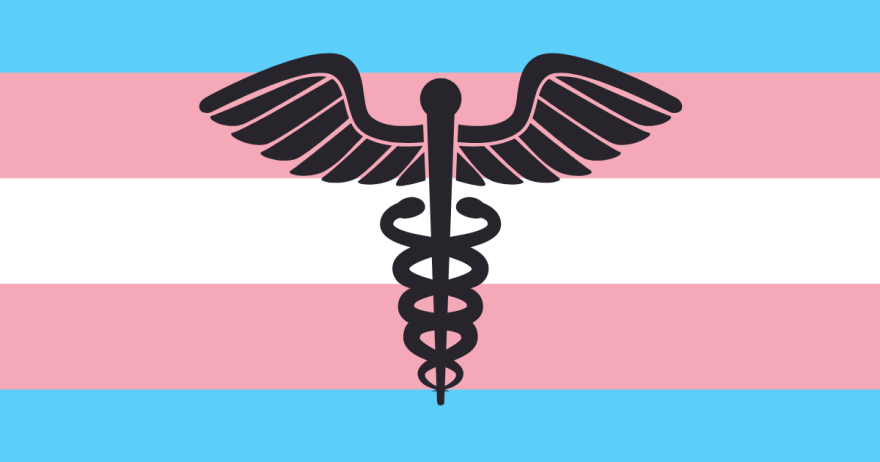
Stigma, confusion and outright discrimination shape the health care experiences of many transgender and gender non-conforming people. In a national survey of transgender people in the U.S., 29% said health care providers had refused to see them because of their actual or perceived gender identity.
On this edition of the Embodied series, host Anita Rao learns about the ways gender-affirming doctor’s visits, home life and classrooms can improve health outcomes for transgender and gender-nonconforming people.
Rao talks with Max Brown, a rising ninth grader in Western North Carolina who is doing lots of research about what it means to transition. He socially transitioned earlier in middle school and is now taking steps to ensure he feels comfortable in his own body. While support structures have been lacking in school, Max relies heavily on his pediatrician and Youth OUTright WNC in Asheville to manage his mental and physical wellbeing. His mother, Frances Brown, joins the program to discuss her own learning process while ensuring her son’s health.
Health risks and academic setbacks for young people can have lasting effects, including joblessness and homelessness well into adulthood, explains Rebby Kern, director of education policy at Equality NC. There are easy steps that schools, families and health providers can take to address gender discrimination and secure more equitable health outcomes.
The UNC Transgender Health Program is providing comprehensive transgender health care, from surgery to therapy.
Program manager and registered nurse Katherine Croft explains to Rao the four ways North Carolina can improve health care for transgender and gender non-conforming patients.
1. Educate health care providers
A lot of trans people feel like they have to educate their doctor on how to treat them.
Trans people therefore spend a lot of time self-advocating and looking up information and trying to do their own research about their treatments, because they feel like when they go into their provider, they may not get a provider who is understanding and knowledgeable about what they are dealing with.

2. Guarantee gender-affirming care
Gender-affirming care is really about focusing on providing comprehensive health care to patients in a way that supports them as an individual.
It recognizes and acknowledges their gender identity and their gender expression. It doesn't bio-essentialize [patients] by breaking them down to what sex designation is on their birth certificate. It looks at the whole picture. … You have to be aware of what it means for hormone therapy to be taken by a patient and what effects you have to be aware of — what organ configuration they have after surgery and what their risks are.
It really intersects with everyday needed health care that anyone would try to get, but that trans people tend to have a much harder time obtaining because their providers are not educated enough to provide this kind of care.
3. Change requirements for surgery
When a transgender person is seeking surgery for alleviating gender dysphoria, then it's required that they meet certain standards that another person seeking surgery — who's not transgender — wouldn't have to meet, such as letters of support from mental health providers that have assessed and made sure that they're good for the surgery.
We do the same surgeries on people who are transgender and not transgender, but the transgender folks have to get these letters and be assessed and have multiple steps through multiple providers, even just to get in the door. Whereas cisgender [people] or someone who's not transgender would just go into the doctor, get the assessment from their provider and then get the surgery that they need.
4. Ensure comprehensive coverage
At this point, all of our major insurance partners [at UNC] have some kind of trans-specific policy that details what they'll cover and what they won't. Those policies, in broad terms, are based off of the guidelines set by the World Professional Association for Transgender Health. …
There are two exceptions within North Carolina. Our state Medicaid doesn't have a policy, so there is no exclusion to transgender care, but there's no policy in general. And then our State Health Plan, which is administered by Blue Cross Blue Shield, who have their own policy on trans care — yet our State Health Plan does not cover any transgender services.
Note: This program originally aired June 25, 2020.
Copyright 2020 North Carolina Public Radio



